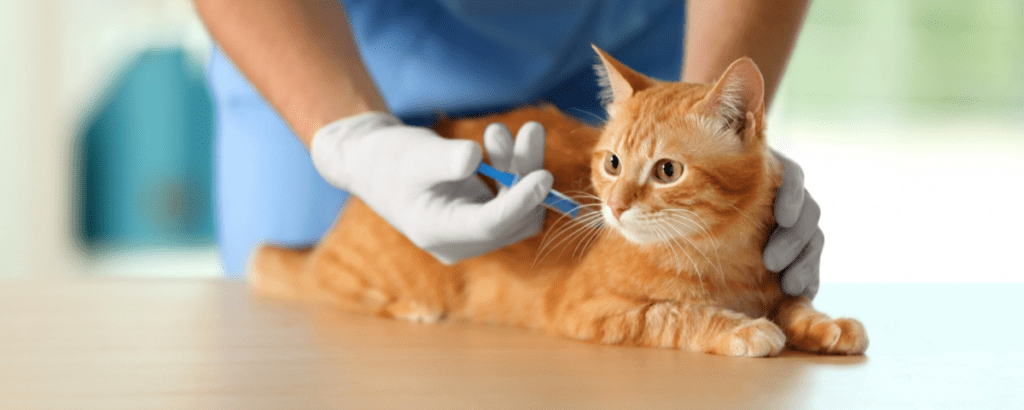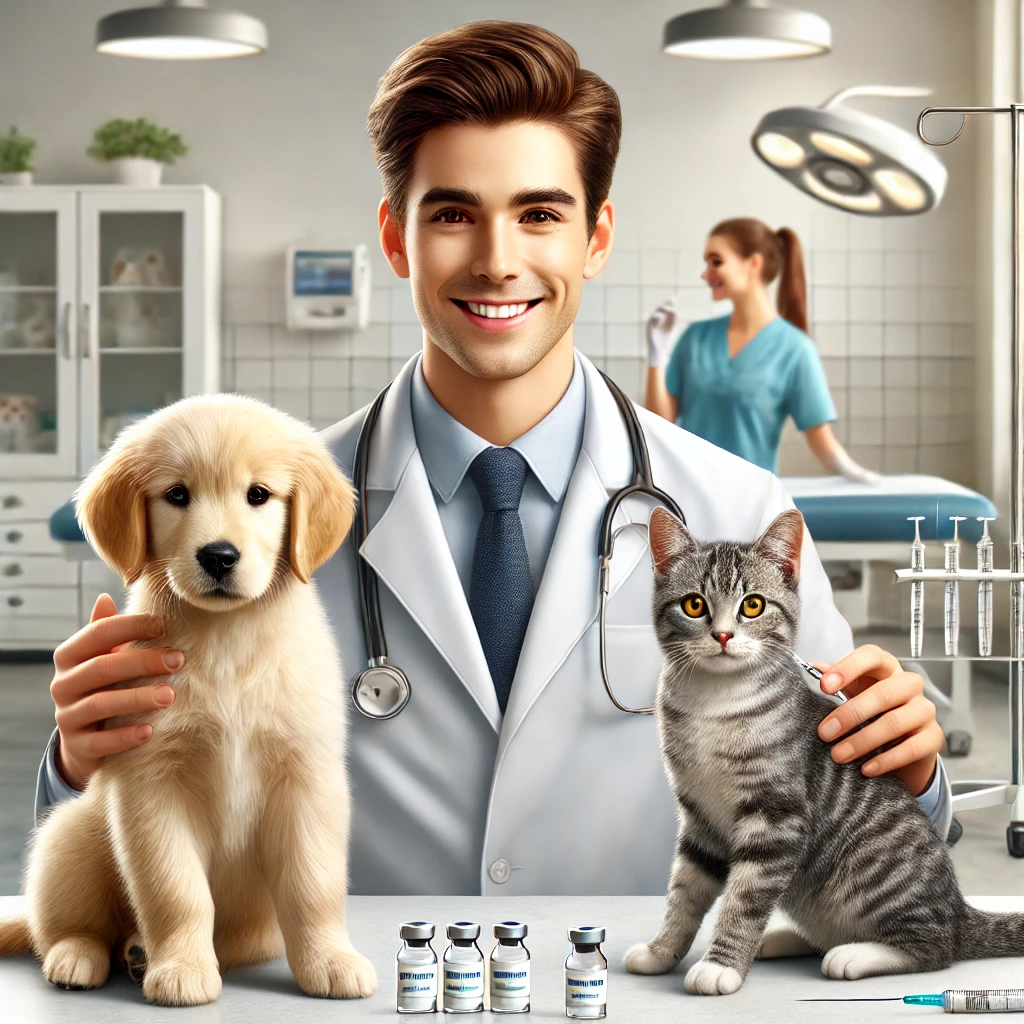Vaccination for dogs and cats
Vaccinations play a critical role in ensuring the health and longevity of your furry companions. Whether you’re a new pet owner or an experienced caregiver, understanding the basics of vaccinating your dogs and cats can make a world of difference in their well-being. Vaccination for dogs and cats is essential not only for preventing serious illnesses but also for enhancing their overall quality of life. Regular immunizations can protect your pets from life-threatening diseases, many of which can be costly to treat and potentially fatal.
This article will guide you through the importance of vaccinations, helping you understand why they are a cornerstone of your pet’s health care. Vaccines are designed to prepare your pet’s immune system to fight off harmful pathogens before they can cause illness, reducing the risk of outbreaks within the pet population. The vaccines your pet requires may depend on factors like their age, lifestyle, and geographical location. For example, puppies and kittens typically need a series of vaccines to establish immunity, while adult pets may require booster shots to maintain protection.
The types of vaccines your pet needs will vary, but core vaccines such as rabies, distemper, parvovirus, and feline calicivirus are crucial for all dogs and cats. Non-core vaccines, like those for Bordetella or Lyme disease, might be recommended depending on your pet’s specific exposure risks. Your veterinarian will assess your pet’s needs and help create a tailored vaccination plan to ensure they stay healthy and protected throughout their life.
Vaccination for dogs and cats is not just about preventing diseases—it’s about giving them the best chance at a long, happy, and healthy life. During the vaccination process, your veterinarian will explain what to expect, making sure you’re prepared for any potential reactions and addressing any concerns you may have. By staying on top of your pet’s vaccination schedule and maintaining regular veterinary check-ups, you’re investing in their health and well-being for years to come.
Why vaccinate your pets?
Vaccinations are essential in preventing infectious diseases that can harm or even kill pets. They work by stimulating your pet’s immune system to recognize and combat specific pathogens. Diseases such as rabies, distemper, and feline leukemia are not only life-threatening but also highly contagious. By vaccinating your pets, you protect them and contribute to the overall health of your local animal community.
Core vs. Non-Core Vaccines
Vaccines are typically divided into two categories: core and non-core.
- Core Vaccines: These are essential for all pets, regardless of lifestyle, as they protect against diseases that are widespread and have significant health impacts. Examples include:
- For Dogs: Rabies, distemper, parvovirus, and canine adenovirus.
- For Cats: Rabies, feline panleukopenia (distemper), feline calicivirus, and feline herpesvirus.
- Non-Core Vaccines: These are recommended based on factors like your pet’s lifestyle, geographic location, and exposure risks. Examples include:
- For Dogs: Bordetella (kennel cough), Lyme disease, and leptospirosis.
- For Cats: Feline leukemia and chlamydia.
Your veterinarian will determine the appropriate vaccines based on your pet’s individual needs.
Vaccination schedule for dog ou cat
Pets require vaccinations at different stages of life:
- Puppies and Kittens: Begin vaccinations at 6-8 weeks of age and continue every 3-4 weeks until they are about 16 weeks old.
- Adult Pets: After completing their initial series, pets typically require booster shots every 1-3 years, depending on the vaccine.
- Senior Pets: Older animals may require tailored vaccination schedules to accommodate their changing health needs.

What to expect during vaccination
Vaccination appointments are straightforward yet essential for maintaining your pet’s health. Vaccination for dogs and cats is a key aspect of responsible pet ownership, protecting them from a wide array of preventable diseases. During the appointment, your veterinarian will conduct a thorough examination to ensure your pet is healthy enough to receive immunizations. This step is crucial to maximize the vaccine’s effectiveness and ensure your pet’s safety.
The vaccine is typically administered via injection, a quick and relatively painless procedure. In some cases, intranasal or oral vaccines may be used, depending on the type of vaccine and your pet’s needs. Your veterinarian will explain the process and answer any questions to ensure you’re comfortable and informed.
After the vaccination, it’s important to monitor your pet for any side effects, which are generally mild and temporary. Common reactions include a mild fever, slight swelling at the injection site, decreased appetite, or lethargy. These symptoms usually resolve on their own within a day or two.
While severe reactions are rare, they require immediate veterinary attention. Signs to watch for include difficulty breathing, swelling of the face or extremities, vomiting, diarrhea, or sudden collapse. Prompt action can help address these issues and ensure your pet recovers fully.
Vaccination for dogs and cats is not just about individual health—it’s about contributing to the broader effort to control and eradicate diseases within the pet population. By keeping up with your pet’s vaccination schedule and consulting your veterinarian regularly, you are giving them the best protection and promoting a healthier community for all animals.gns include difficulty breathing, vomiting, or swelling of the face.
Common concerns about vaccinations
- Are Vaccines Safe? Yes, vaccines are thoroughly tested for safety and efficacy. The benefits far outweigh the risks of potential side effects.
- Can Indoor Pets Skip Vaccinations? Even if your pet stays indoors, they can still be exposed to diseases through contact with other animals, contaminated surfaces, or vectors like mosquitoes.
- Are Vaccinations Expensive? While there is a cost involved, it is minimal compared to the potential expenses of treating a severe illness. Many communities also offer low-cost vaccination clinics.
The role of herd immunity
When a large percentage of pets in a community are vaccinated, it creates herd immunity. This minimizes the spread of diseases and protects pets who are unable to be vaccinated due to medical reasons.
Vaccinating your pets is one of the simplest yet most effective ways to ensure their long-term health and happiness. Vaccination for dogs and cats plays a vital role in protecting them from a range of serious and potentially life-threatening diseases, such as rabies, distemper, parvovirus, and feline leukemia. These preventable illnesses not only threaten your pet’s well-being but can also pose risks to other animals and even humans in some cases.
Regular vet visits and staying on top of their vaccination schedule are essential steps in safeguarding their health. Your veterinarian can help identify the core vaccines that are necessary for all pets, as well as any non-core vaccines recommended based on your pet’s lifestyle, environment, and exposure risks. Vaccination for dogs and cats is a proactive measure that not only shields them from harm but also contributes to the broader health of your community by reducing the spread of infectious diseases.
Talk to your veterinarian today to develop a vaccination plan tailored to your furry friend’s unique needs. By staying informed and committed to their health care, you are giving your beloved companion the best chance at a happy, healthy life. Vaccination is a small step that leads to a lifetime of benefits, ensuring your pet can thrive by your side for years to come.

